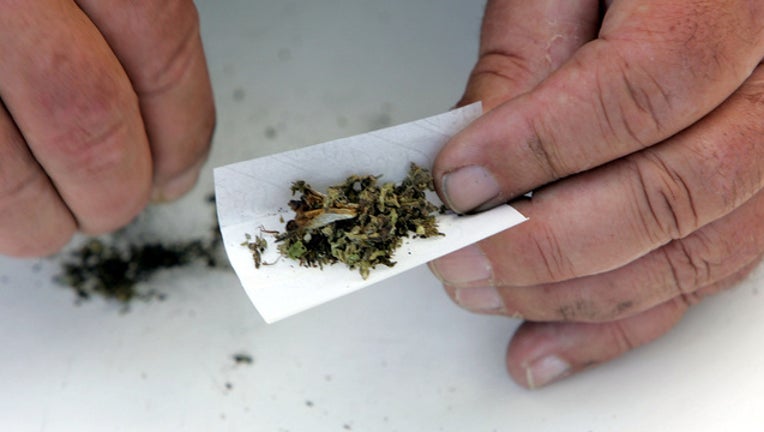Michigan lawmakers have until Tuesday to decide to vote on marijuana

(Photo by Justin Sullivan/Getty Images)
(WJBK/AP) - This fall, Michigan voters may be able to decide if marijuana should be legal - but the state lawmakers could hold the vote on Tuesday instead, legalizing weed in Michigan.
A pro-pot coalition wants Michigan voters to decide the issue in November.
But last week, Republican Senate Majority Leader Arlan Meekhof said he had the votes to legalize pot without a vote of the people. He said he wanted to amend the proposal to place more controls on the production, distribution and sale of pot.
Even if Meekhof has the support, the House may not. Republican House Speaker Tom Leonard said that the house was well short of the 55 votes needed to support the bill.
Leonard said it would take a "marijuana miracle" for the House to vote on it by a Tuesday deadline. Republicans, who control both chambers, are divided on the issue and Democratic leaders want voters to decide.
The deadline for the legislation to decide is Tuesday. If they are unable to pass a bill to legalize marijuana, it would go onto the ballot in November.
At stake is how recreational marijuana would be regulated. If it were passed by voters in November, future changes would require the support of three-fourths of both chambers of the Legislature. If the Legislature were to pass the measure, which would not require the governor's signature to become law because it is a ballot initiative, legislators could later amend the law through simple majority votes.
Meekhof said he is concerned that the ballot proposal lacks enforcement provisions and that House leaders seem prepared to allow the "unregulated" recreational use of marijuana if voters pass the measure. He said talk of how adopting the initiative now might keep Democratic-leaning voters from turning out at the polls in November is "secondary" to his worries about how it is written.
Leonard said he is no "dictator" and that while he personally opposes the legalization of recreational marijuana, he would not prevent a vote if his caucus wants one.
The proposal would let people age 21 or older possess up to 2.5 ounces (71 grams) of marijuana outside their home and grow up to 12 plants at home. A 10 percent excise tax on marijuana would be assessed at the retail level on top of the 6 percent state sales tax. Businesses would need a state license to grow, sell, transport, process or test marijuana. Local governments could ban marijuana businesses or impose additional regulations.
A group opposing the ballot initiative, the Committee to Keep Pot Out of Neighborhoods and Schools, has urged lawmakers to adopt and amend the initiative, saying it fears the version heading to the ballot would "dismantle the bipartisan regulatory structure carefully designed for the medical marijuana industry."
Michigan, which has allowed medical marijuana use for nearly a decade, would become the 10th state to legalize the drug for recreational use. According to national polls, a solid majority of Americans support legalization. Gallup's latest survey gauged support at 64 percent.
Michigan Democrats say voters should decide the issue.
"The Republicans' discussion around this is not about trying to enact a policy that is in front of us. It's to actually enact a policy to change it," said House Minority Leader Sam Singh of East Lansing. "There's one group of Republicans who want to gut it. There's another group of Republicans who basically want to get a couple of their donors to run the whole thing and enrich some of their friends."
Singh said the ballot measure is built around medical marijuana regulations and the only thing that is different is that a "dysfunctional" board responsible for issuing licenses to medical pot businesses would not be involved in licensing the recreational marijuana industry.
The ballot committee that organized the initiative, the Coalition to Regulate Marijuana Like Alcohol, said it is a "complete fabrication" to suggest that regulating recreational pot would differ much from regulating its medical use. Spokesman Josh Hovey welcomed the Legislature passing the measure but only if it were approved in its current form.
The Associated Press contributed to this report

